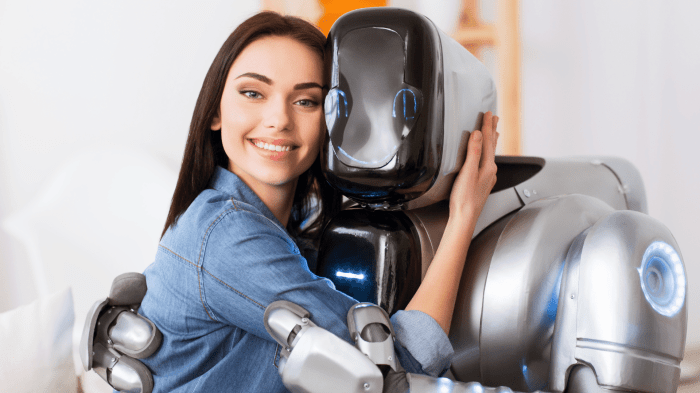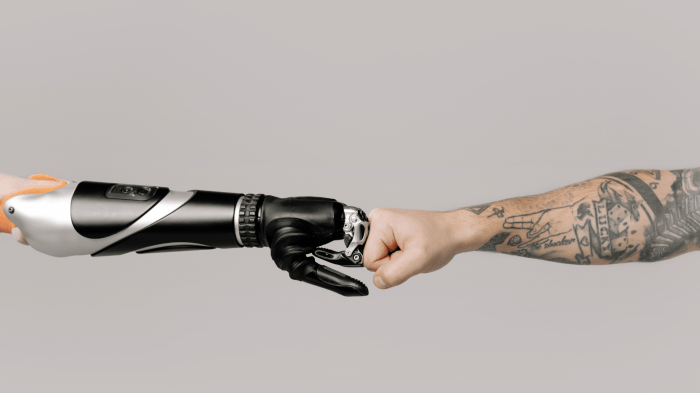Can machines learn morality commonlit answers – In the realm of artificial intelligence, a profound question arises: can machines learn morality? This captivating topic has ignited a convergence of ethical, philosophical, and technical considerations. This discourse delves into the intricacies of machine learning and morality, examining its potential benefits and risks, exploring philosophical perspectives, and uncovering the challenges and implications of developing moral machines.
From healthcare to law and finance, the impact of machines capable of moral decision-making reverberates across various fields. However, this transformative potential is not without its complexities. Unraveling the intricacies of this topic, we embark on an exploration of the key challenges, promising research directions, and societal implications that accompany the pursuit of machines that can learn morality.
Machine Learning and Morality

Machine learning (ML) is a subfield of artificial intelligence (AI) that gives computers the ability to learn without being explicitly programmed. ML algorithms can be trained on large datasets to identify patterns and make predictions. As ML becomes more sophisticated, there is growing interest in the potential for machines to learn morality.
The ethical implications of machines making moral decisions are complex. On the one hand, machines could potentially make more objective and consistent decisions than humans. They could also be programmed to follow specific ethical principles, which could help to reduce bias and discrimination.
On the other hand, there is concern that machines could lack the empathy and common sense that are essential for making good moral decisions.
The potential benefits of machines learning morality are significant. Machines could help us to make better decisions in a variety of areas, such as healthcare, law, and finance. They could also help us to develop new ethical frameworks that are more responsive to the challenges of the 21st century.
Philosophical Perspectives on Morality
There are a number of different philosophical perspectives on morality. Some of the most common include:
- Utilitarianism: This perspective holds that the right action is the one that produces the greatest good for the greatest number of people.
- Deontology: This perspective holds that the right action is the one that conforms to a set of moral rules or principles.
- Virtue ethics: This perspective holds that the right action is the one that is performed by a virtuous person.
These different perspectives on morality can have a significant impact on the development of moral algorithms. For example, a utilitarian algorithm might be designed to make decisions that maximize happiness, while a deontological algorithm might be designed to make decisions that follow a set of moral rules.
Challenges in Developing Moral Machines
There are a number of challenges involved in developing machines that can learn morality. One challenge is the difficulty of defining morality in a way that is both precise and comprehensive. Another challenge is the fact that moral decisions often involve complex trade-offs between different values.
For example, a self-driving car might have to choose between swerving to avoid a pedestrian and hitting a group of cyclists. There is no easy way to determine which decision is the “right” one.
Despite these challenges, there has been significant progress in the development of moral machines. Researchers have developed a number of different algorithms that can make moral decisions in a variety of different contexts. These algorithms are still in their early stages of development, but they have the potential to revolutionize the way we make decisions about complex ethical issues.
Applications and Implications
Machines that can learn morality could have a wide range of applications. They could be used to help us make better decisions in a variety of areas, such as healthcare, law, and finance. They could also help us to develop new ethical frameworks that are more responsive to the challenges of the 21st century.
The societal implications of machines making moral decisions are complex. On the one hand, machines could potentially make more objective and consistent decisions than humans. They could also be programmed to follow specific ethical principles, which could help to reduce bias and discrimination.
On the other hand, there is concern that machines could lack the empathy and common sense that are essential for making good moral decisions.
Future Directions and Research, Can machines learn morality commonlit answers
There are a number of promising areas for future research in the field of machine learning and morality. One area of research is the development of new algorithms that can make more sophisticated moral decisions. Another area of research is the development of new methods for evaluating the ethical performance of moral algorithms.
Finally, there is a need for more research on the societal implications of machines making moral decisions.
Common Queries: Can Machines Learn Morality Commonlit Answers
What are the ethical implications of machines making moral decisions?
The ethical implications are vast and complex, including issues of accountability, bias, and the potential erosion of human values.
How can philosophical perspectives influence the development of moral algorithms?
Philosophical perspectives provide frameworks for understanding morality, shaping the design and evaluation of moral algorithms.
What are the key challenges in developing machines that can learn morality?
Key challenges include defining moral principles, handling uncertainty, and addressing the potential for bias and unintended consequences.

